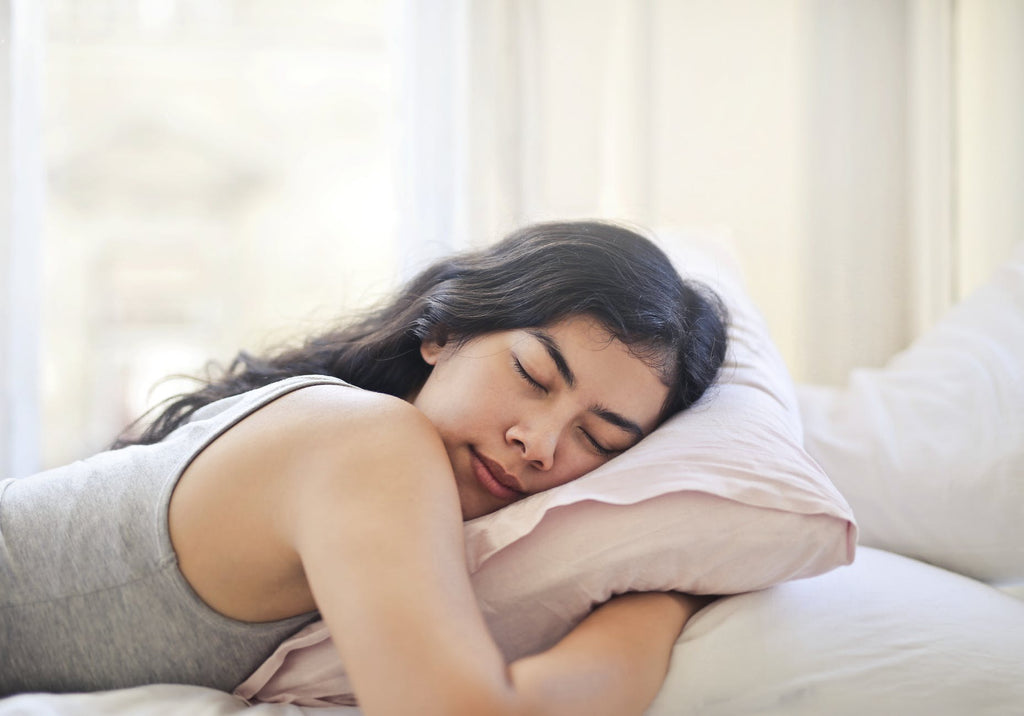Here is what you should and shouldn’t do to sleep better
Remember when you wore sleeplessness as a badge of pride because who needed sleep anyway? Well, we all do. Research shows that a good night’s sleep is just as crucial for a healthy lifestyle as eating the right diet and exercising regularly. Most adults need seven to nine hours of sleep per night for their body and brain to function properly. Yet, according to Centers for Disease Control and Prevention, one out of every third American doesn’t get enough sleep, likely because of work stress, family responsibilities and daily house chores.
While you might not be able to alter these factors, you can adopt habits that encourage better sleep. Start with these five simple yet effective steps.
-
MAKE THE ROOM DARK AND WEAR BLUE LIGHT-BLOCKING GLASSES
Nothing is worse for a
good night’s sleep than looking at your phone in bed. You expose yourself to blue light, which tells your brain that it’s daytime and to stop producing melatonin, the sleep hormone. Consider wearing blue light glasses two hours before bedtime, which will help reduce the amount of blue light from reaching your eyes. If you live in a city with high levels of light pollution, invest in blackout curtains for your bedroom.
-
KEEP THE ROOM COOL
At bedtime, keep your bedroom temperature to 60 °F to 70 °F. Your body’s temperature decreases during sleep and a cool, but not cold, room will help facilitate this decrease, which in turn will initiate sleepiness.
-
EXPOSE YOURSELF TO SUNLIGHT WHEN YOU WAKE UP AND WORK OUT
Step outside your room, into broad daylight for about 15 minutes upon waking up. This strengthens your
circadian rhythm for future sleep and improves your mood.
-
STICK TO A REGULAR BEDTIME ROUTINE
Late nights on weekends and sleeping in on Sundays may feel great, but it creates a condition called social jet lag, which is why we dread Mondays. Going to sleep and waking up at the same time, each day, even on your days off, helps the body desire sleep at a certain time each night.
-
RELAX YOUR MIND AND BODY
Tensing and releasing each muscle group calms the mind and relaxes muscles. Focus on your breath: Inhale, exhale, repeat. You can also try the technique of visualization or listen to relaxing music.
IMAGE COURTESY: https://www.pexels.com/@feelartfeelant
While these are things that you should practice daily to achieve a
good night’s rest, there are a few sleep stoppers that you must eliminate from your bedtime schedule.
-
NO FOOD AND ALCOHOL THREE HOURS BEFORE BED
According to National Sleep Foundation, y
ou should avoid eating carbohydrates (think white bread, pasta, white rice) before bed. Alcohol is a short-acting sedative, so while you may crash after a few drinks, you wake when it dissipates after a few hours.
-
NO CAFFEINE AFTER 2:00 PM
Recent findings suggest that an evening cup of coffee changes circadian rhythms at the cellular level. Try a glass of warm milk or decaffeinated tea if you need a beverage before bedtime.
-
NO EXERCISE FOUR HOURS BEFORE BED
Studies suggest that working out at 7:00 A.M. or between 1:00 P.M. and 4:00 P.M. could shift the body’s clock earlier, helping people fall asleep more easily. Exercising during the evening can delay the body clock, making for sluggish mornings.
FEATURED IMAGE COURTESY: https://www.pexels.com/@olly


